This course is unfortunately closed. Opens again for enrollment in August of 2026. “This is the best course you have ever made – it has been so interesting!” / Mia Rasmussen When animals display undesired or problematic, challenging behaviours, these may be of two kinds: The trick to solving both types of situation is understanding the why. And in the Resolving Challenging Behaviour course, I’ll teach you. I’m Karolina Westlund, an associate professor of ethology with a somewhat obsessive interest in animal behaviour, learning and welfare. Admittedly, I have rather limited practical experience in this area. But I’m not basing this course on years of personal experience gained through trial-and error. I’m basing it on the fact that I’ve spent more than 17 years as an ethologist working to prevent and resolve behavioural challenges, and I’ve attended more than 60 international animal behaviour-related courses, conferences and seminars, where I’ve learned from some of the best contemporary animal trainers, behaviour consultants, and veterinarians in the world. “Crikey Karolina! What an incredible course! I have learned many new nuances, consolidated previously understood concepts, and added more depth to my understanding of animal training.” / Jacquie Billington I approach behaviour from a multidisciplinary perspective, and apart from a solid background in applied ethology (how captive animal behaviour is influenced by evolutionary history), I have also studied how emotions impact behaviour (affective neuroscience), as well as the importance of context and previous learning in explaining behaviour (applied behaviour analysis). I take the animal’s emotional experiences very seriously and teach ethical, kind and empowering ways to bring about behaviour change. I’ve distilled all those different perspectives into one extensive online course on the topic of tackling undesired behaviour, all the while ensuring that the animal’s wellbeing and agency isn’t compromised. Resolving Challenging Behaviour discusses the whys and gives you a structured approach to dealing with unwanted behaviour. “This course should be a Bible for animal trainers! This is a truly breathtaking course that breaks down every aspect of the science behind behavioral modification procedures.” / Fran Messina Note that the Resolving Challenging Behaviour course covers general principles and gives examples from the most common type of behavioural challenges seen in companion animals, but it does not include any detailed and personal consulting on specific predicaments that you may be facing. “I have attended many different dog courses with several course organizers, and your courses are of a much higher quality than all the others”. / Pia Bildt Ström This course is for you if: I should warn you. This course is not a quick fix. If you don’t know that much about animal learning and behaviour, and just want your specific challenge resolved rather than understanding the whys, this course is not for you. Also, this course is not for beginner trainers. You don’t have to have that much practical experience, but you should have a working knowledge of basic theoretical concepts related to operant learning and classical conditioning. Why? Because so much of the resolution to behavioural challenges is about teaching the animal some other behaviour than the one she’s currently showing. So, knowing (at least in theory) how to do that is a prerequisite to taking this course. If you feel like maybe you’re not there yet, I suggest you start out with this foundational animal training course to develop those skills – or hire a behavioural consultant, who can guide you through your specific challenge, and provide ongoing feedback and advice tailored to your particular situation. “This is a mind-blowing course! It was exactly what I was looking for, and I’m glad to realize I’m not alone in “nerdyland”. It’s difficult to find a course so well explained, a teacher so passionate, a content so carefully laid out and researched.” / Silvia Montecchio “This course was so incredibly rewarding and educational that I’ve gone through it twice… I will definitely attend this course again in the future, it was fantastic”. / Nathalie Nilsson The course looks at behavioural challenges from many different angles. I’m a scientist, so the foundations of my teaching are based on scientific principles and findings. I view this topic from a multidisciplinary lens, and I’m sharing my insights from applied ethology, behaviour analysis and affective neuroscience. There are examples from multiple animal species, and in each module, there are one to three Deep Dives into specific types of challenges. Below follows a quick guide to the main topics covered in the different modules: We start the course by discussing the two main types of behavioural challenge, and specifically how to address the type 1- challenge (when the animal doesn’t show the behaviours that we are trying to teach). “I have been watching / reading / using all my senses on the first part of the course since early Saturday and can’t stop! It’s WON_DER_FUL! A MUST for all trainers!“ / Pierinna Tenchio In this module, we discuss the many reasons why animals start showing behaviours that to us are in some way undesired – the type-2 challenge. “I feel this is really well summed, it really resonated with me. Watched the video on labelling four times 😂 “ / Riikka Ala-Hulkko In module 3, we discuss just how heavily mood states and emotions influence perception, decision making and behaviour, bringing together different theoretical emotion theories that I find extremely useful in practice (Core Affect Space, Polyvagal Theory and Panksepp’s seven Core Emotions). “So, I am loving ALL of the chapters – but #8 was super chocked full of seriously important goodies with immediate relevance about stress, cortisol and healing. 🙂” / Virginia Ellis on the chapter on stress and coping In this module, we look how the science of Behaviour Analysis addresses challenging behaviour in animals, and the ethical perspective when it comes to selecting our approach. “Terrific module! My take-away is to be flexible and ready to change gears.” / Meg Irizarry We’ll look at ways of harnessing Panksepp’s Core Emotions to help the animal feel differently about the world, so that he becomes less bothered by current triggers. By changing moods, we can change behaviour. “Loved the module, probably my most favorite module of the whole course. I can see in my own life how much the environment the animal lives in, and when its needs are met, affects the animal’s behavior and mood 🙂” / Riin Kooli-Kõnnussaar In this module, we’ll look at ways of helping the animal feel differently about the actual triggers in his environment. By changing emotions, we can change behaviour. “Most complete and analytic on counterconditioning I have ever seen. Very surprised on how many details we miss in daily practice.” / Alexandros Paraschis In this module, we look closely at the ABC-function of the behaviour in its current context, and what we might do to change that function. By changing functions, we can change behaviour. “This module is chalk full of examples of how different training techniques can be massaged into “current training methods and plans” to ultimately build stronger bonds and more collaboration within the teams. I totally loved this module!” /Sandra-Marie Hrycko Inventive, empowering and fun approaches that modern animal trainers and behaviour consultants are exploring to resolve challenging behaviour. “Wow, another incredibly good module! I’ve been examining dog trainers for years and I keep encountering the different types of pattern games as the trainers guide them in the exams. However, I have to admit that until now I have never seen the point in these games and have not even bothered to look into them. That has now absolutely changed. Thank you for broadening my horizons.” / Eva Behnke In this module, we discuss ways of avoiding unwanted behaviour from ever developing in the first place – and how we can prepare for stress-free veterinary visits. “I really loved this module – the animal world needs this!!” / Mia Rasmussen We wrap up the course discussing why punishment is such a bad choice when it comes to resolving challenging behaviour. “The punishment module was exactly what every R+ trainer needs. Armed with this info, we can help to change minds!” / Lesly Taylor The bonus material for this course consist of Case Studies related to each module, where I discuss a specific topic with an expert in the field, including illustrative videos. Each Case Study is about 30-40 minutes long. When you become a student, you’ll be getting weekly emails while the course modules are being delivered. I’ll also keep you posted on my other free webinars, masterclasses, silly experiments, online courses and blog posts! “Keep up what you are doing!! No one else compares to what you offer… Your education needs to be in every DVM university as the behavior core curriculum 😊” / Susan Tripp “How do I get the most out of the course?” My courses are best enjoyed by students who engage in discussions and are active participants – and this engagement doesn’t necessarily have to occur as the modules are released; many students fall behind..! 🙂 Even though the course will be released over a few months, you have a year to finish it – there’s no rush! “Is it worth it?” This course is designed to help both pet guardians and animal professionals prevent and diminish challenging behaviour in the animals in their care. This could have profound implications for animals’ quality of life – as well as their humans’. Also, there’s a 30-day refund period – no questions asked! So, there’s no risk involved. “Is there a scholarship program?” There was, but it’s unfortunately closed now. “Will it work for me?” I feel I need to set your expectations. This course is not intended as a quick fix, and I won’t be taking you by the hand and guiding you through all your individual problematic situations, or provide any detailed step-by-step recipes for how to solve your particular behavioural issue. Rather than solving your animal’s behavioural challenges for you, I’ll teach you a systematic way to address, prevent, and hopefully resolve, those problems all on your own. If you feel that you need close mentoring and guidance to address your particular behavioural challenge, I think you’ll get better help by hiring a professional behavioural consultant. Find one here – many of them will provide online consultations! “But I’m interested in dogs/horses/cats/parrots – wouldn’t I be better off taking a dog/horse/cat/parrot course on problem solving?” This may sound counterintuitive, but you’ll actually become better at addressing your dog’s behaviour (or your horse’s/cat’s/parrot’s behaviour) by learning more about how to address and resolve the challenging behaviour exhibited by multiple animal species. This requires flexibility, which is one of the most important qualities required to be good at resolving behavioural issues. “I feel uncomfortable buying a course unseen – is there a chapter sample available anywhere?” Yes, one of the chapters have been published on my blog: Using Antecedent Strategies to Resolve Challenging Behaviour. “What if I change my mind?” If you sign up and later feel that this course is not for you, there’s a 30-day refund policy. You’ll get your money back – guaranteed! This means that you can actually get free access to almost half of the course content, since 4 out of 10 modules are released by day 30. “What’s the price”? The price of this extensive course is US$ 497:- plus taxes. “Right now is not a good time for me. Can I join later?” The next opportunity of enrolling in this course will be in August of 2026! There’s no waiting list, but if you sign up below I’ll let you know when it opens! I’ll also keep you posted on blog posts, interviews, Masterclasses and my other courses! “Thank you so much for this amazing course! Very complete, very detailed! I loved it! I have 175 pages of notes! The Resolving Challenging Behaviour course is an outstanding program that helped me connect the dots between behavior, emotions, ABA and enrichment. One of the deepest courses I’ve had the chance to take.” / Raphaël Pépin 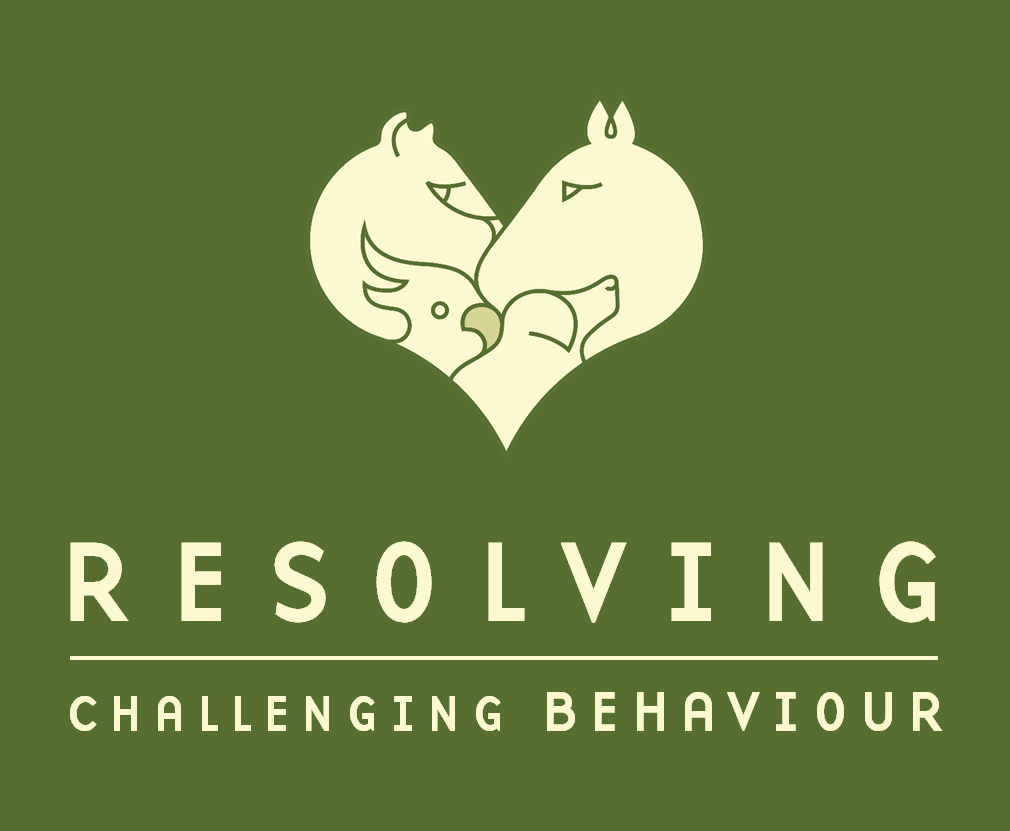

The two kinds of unwanted behaviours

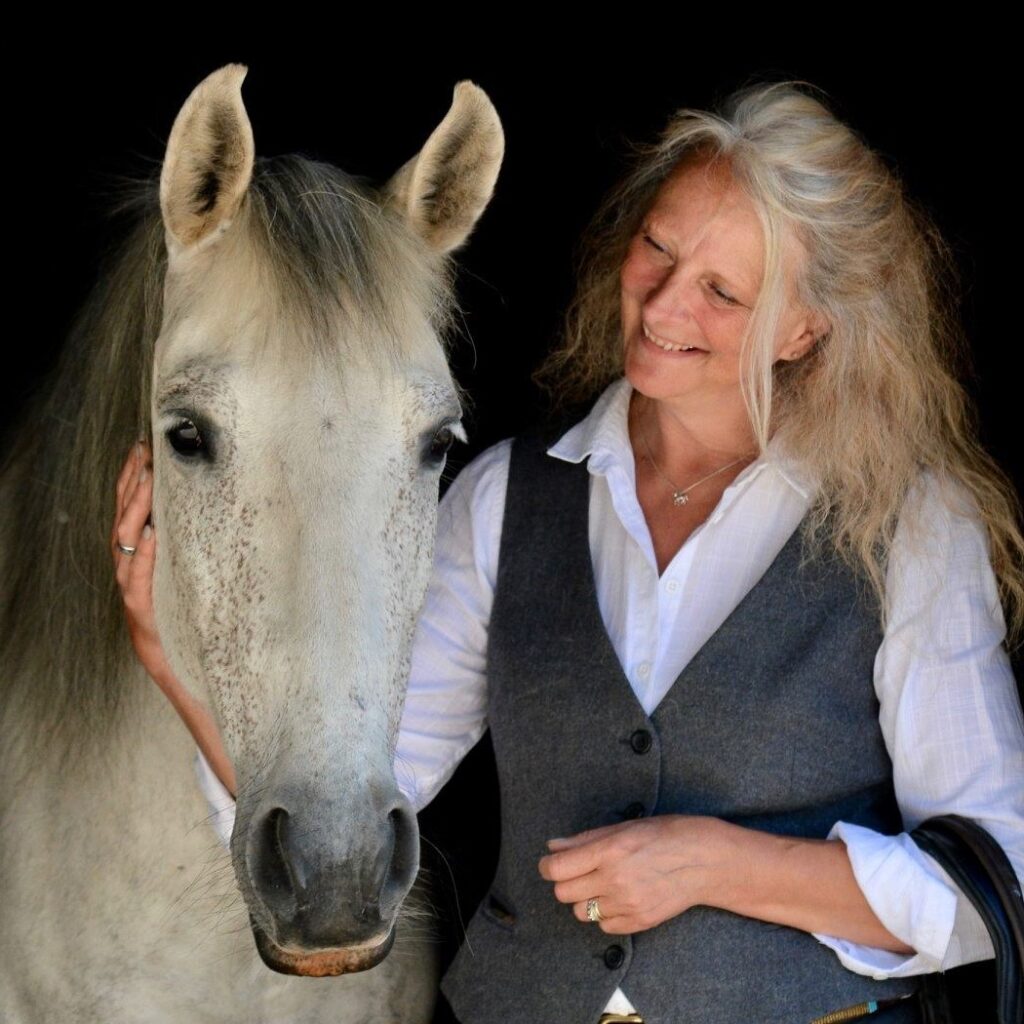
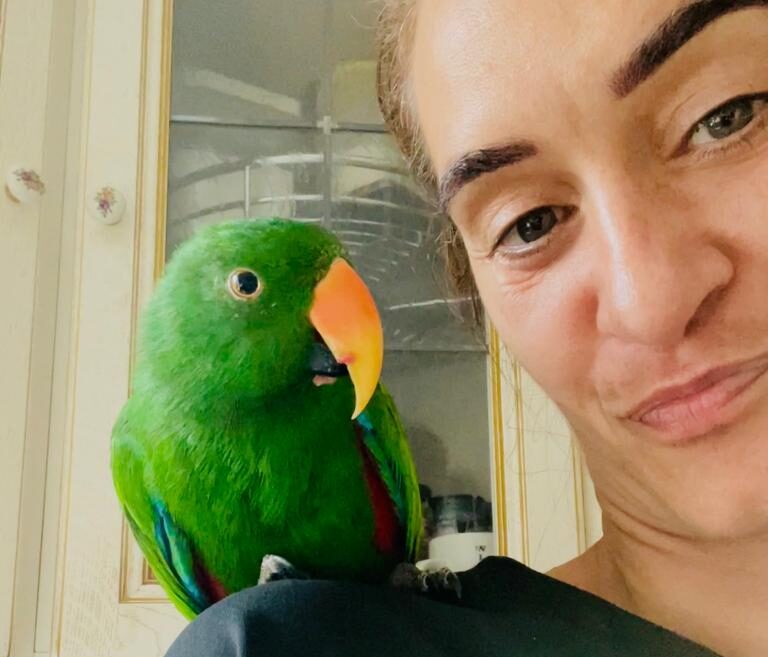
How will the resolving challenging behaviour course change your life- and that of your animal?

Who is this course for?

How is this online course delivered?

Course details.
Module 1 – Not getting behaviour
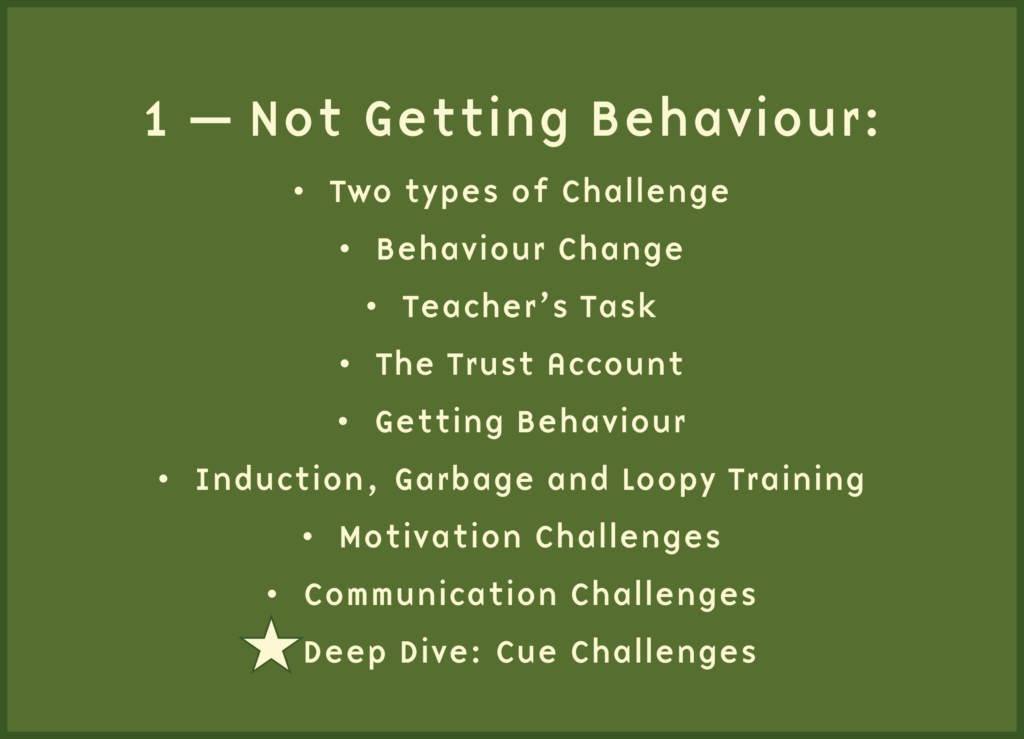

Module 2 – Understanding Causes
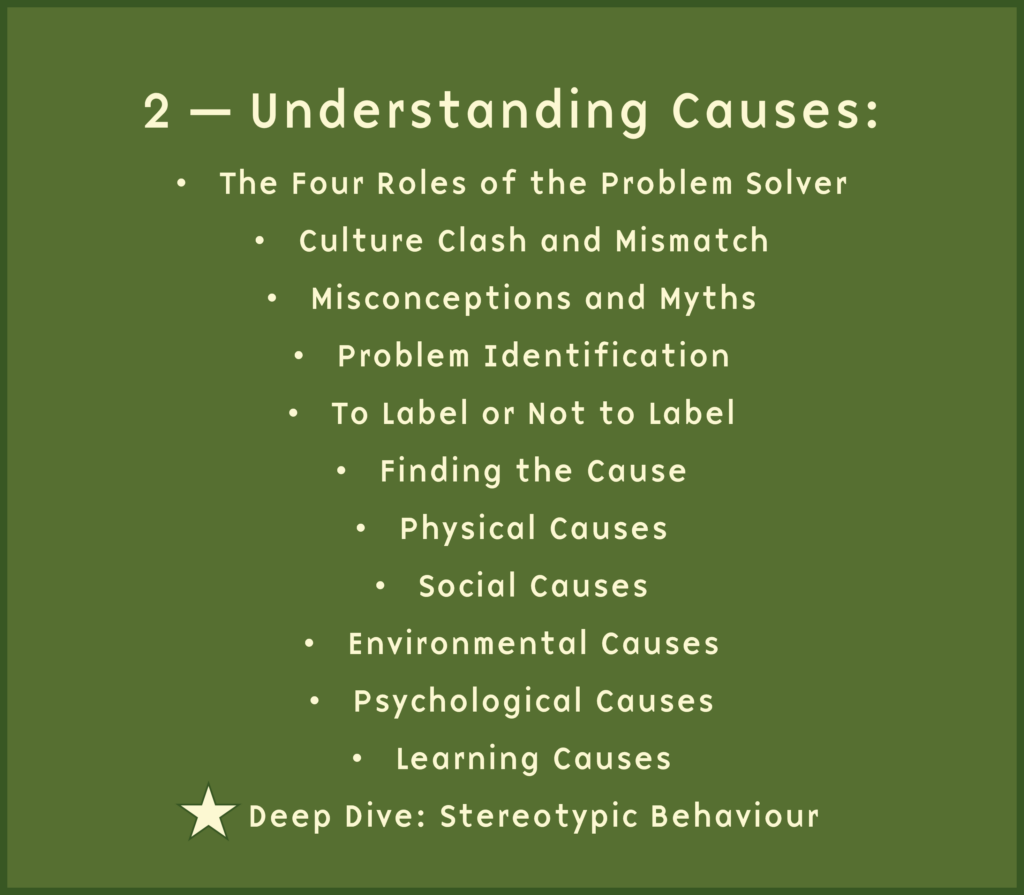

Module 3 – Moods and Emotions
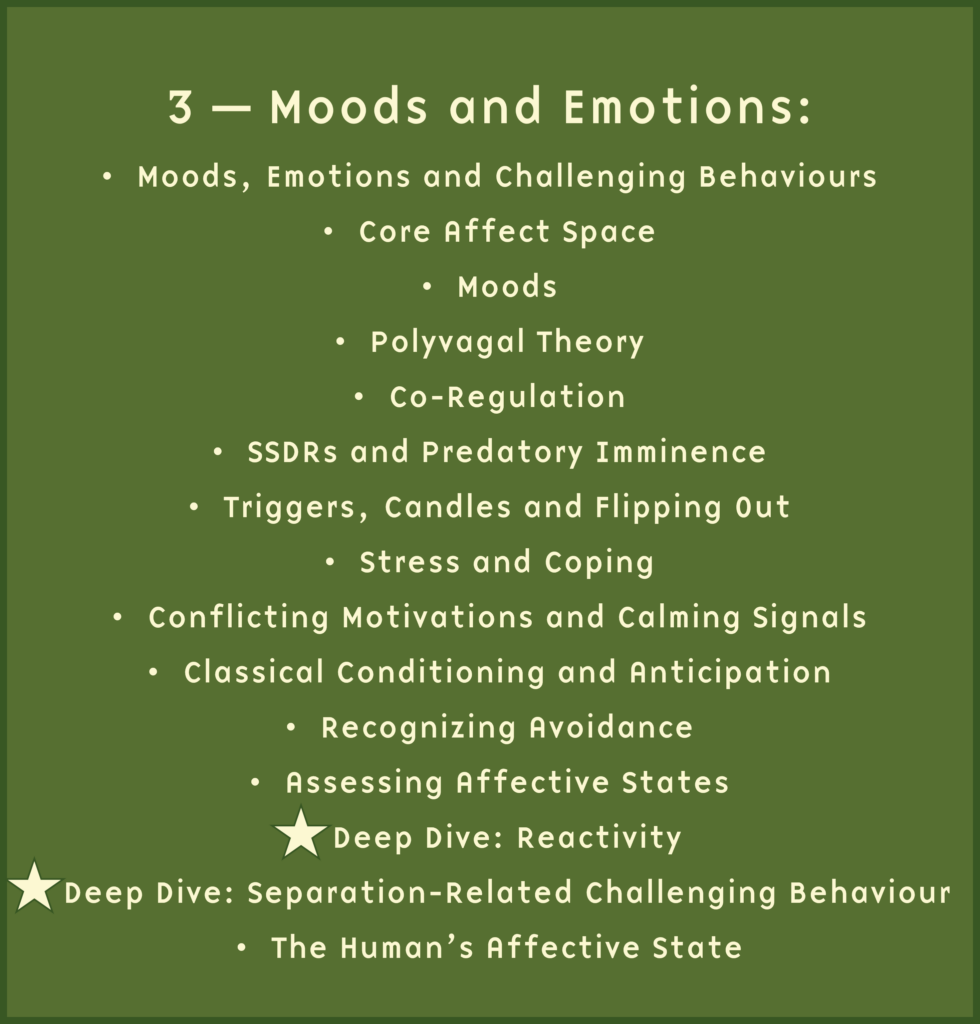

Module 4 – Finding the Function
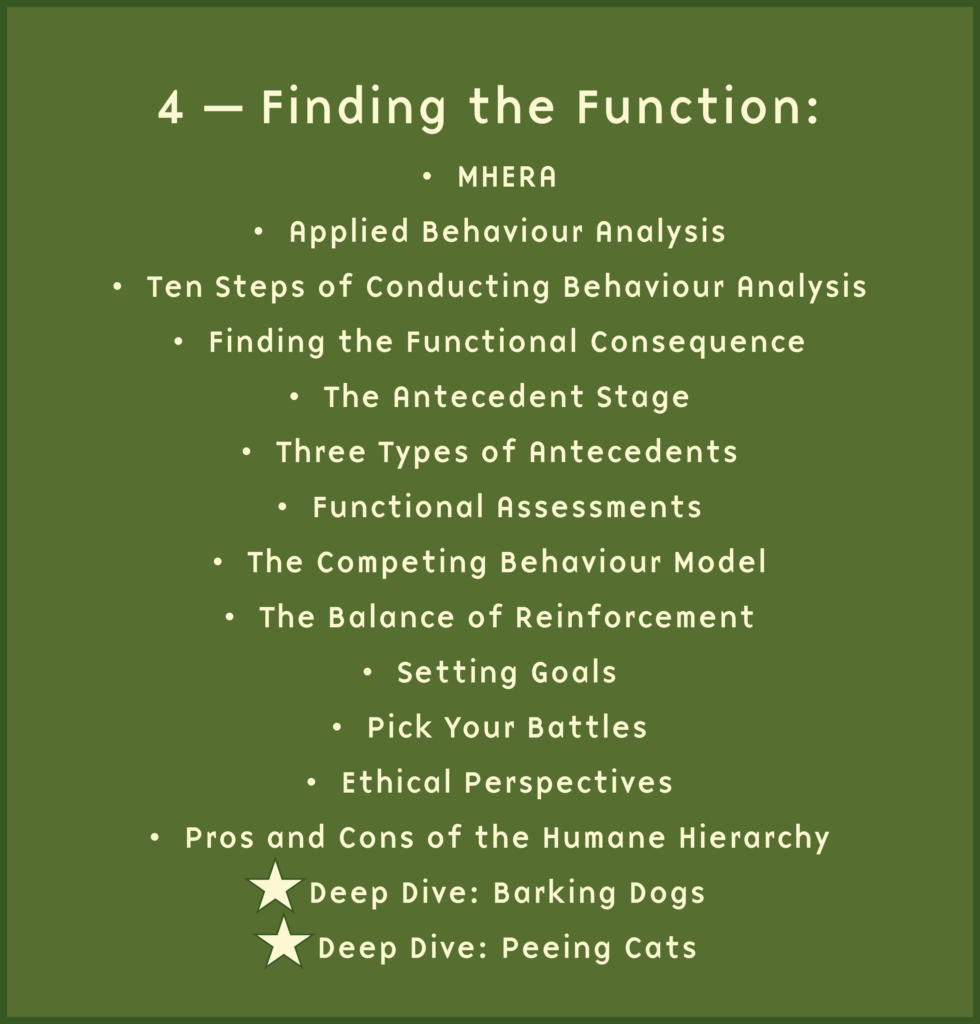
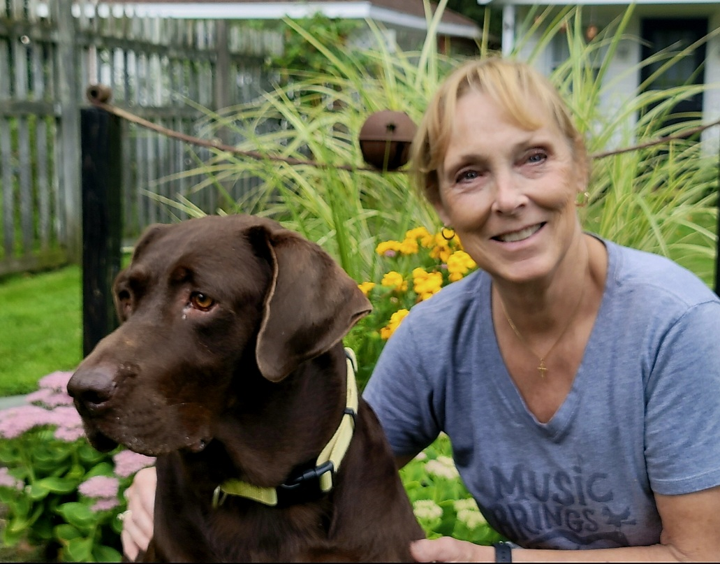
Module 5 – Changing Moods
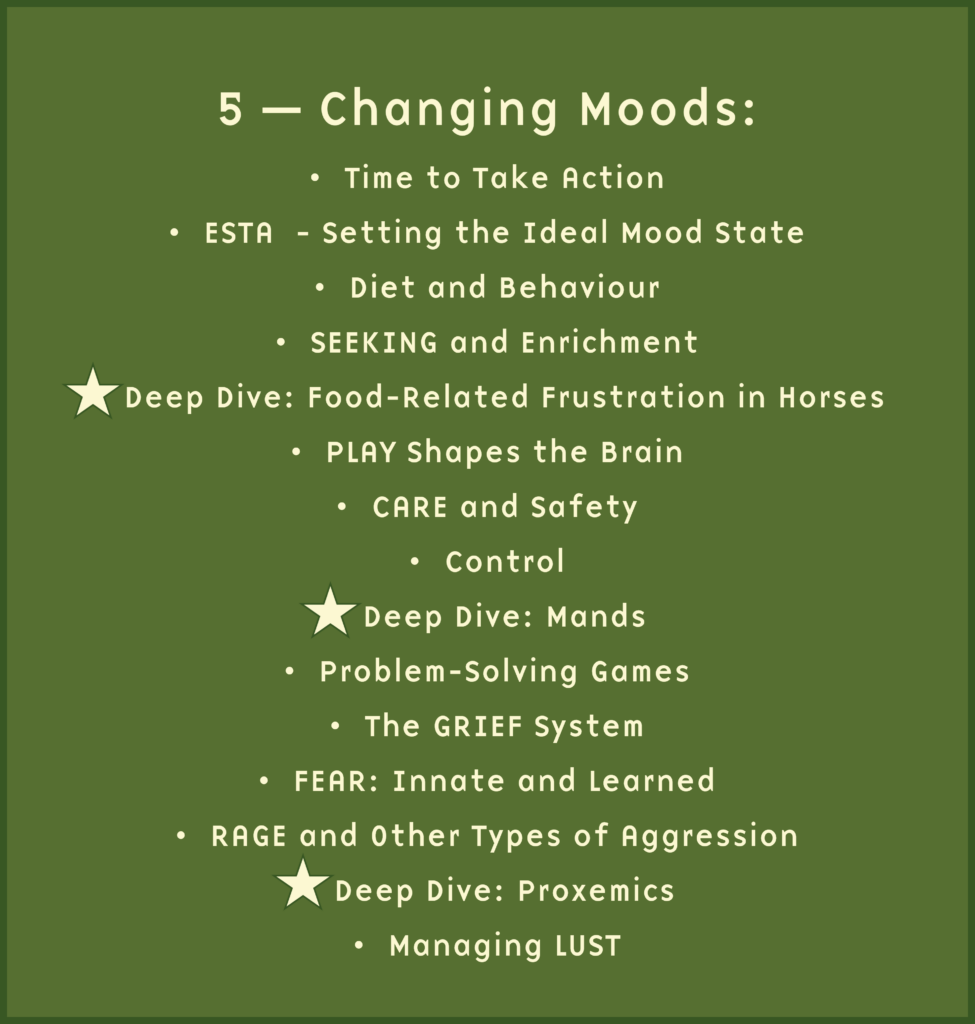

Module 6 – Changing Emotions
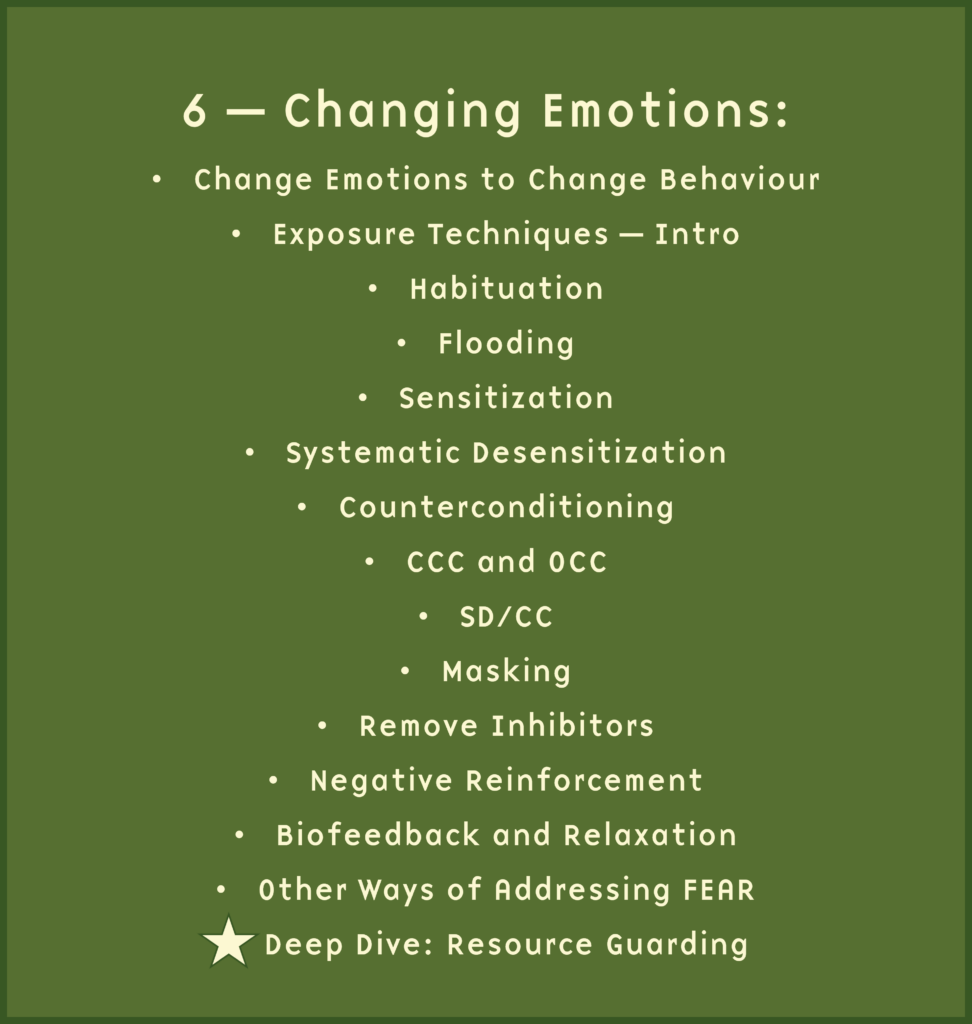

Module 7 – Changing Functions
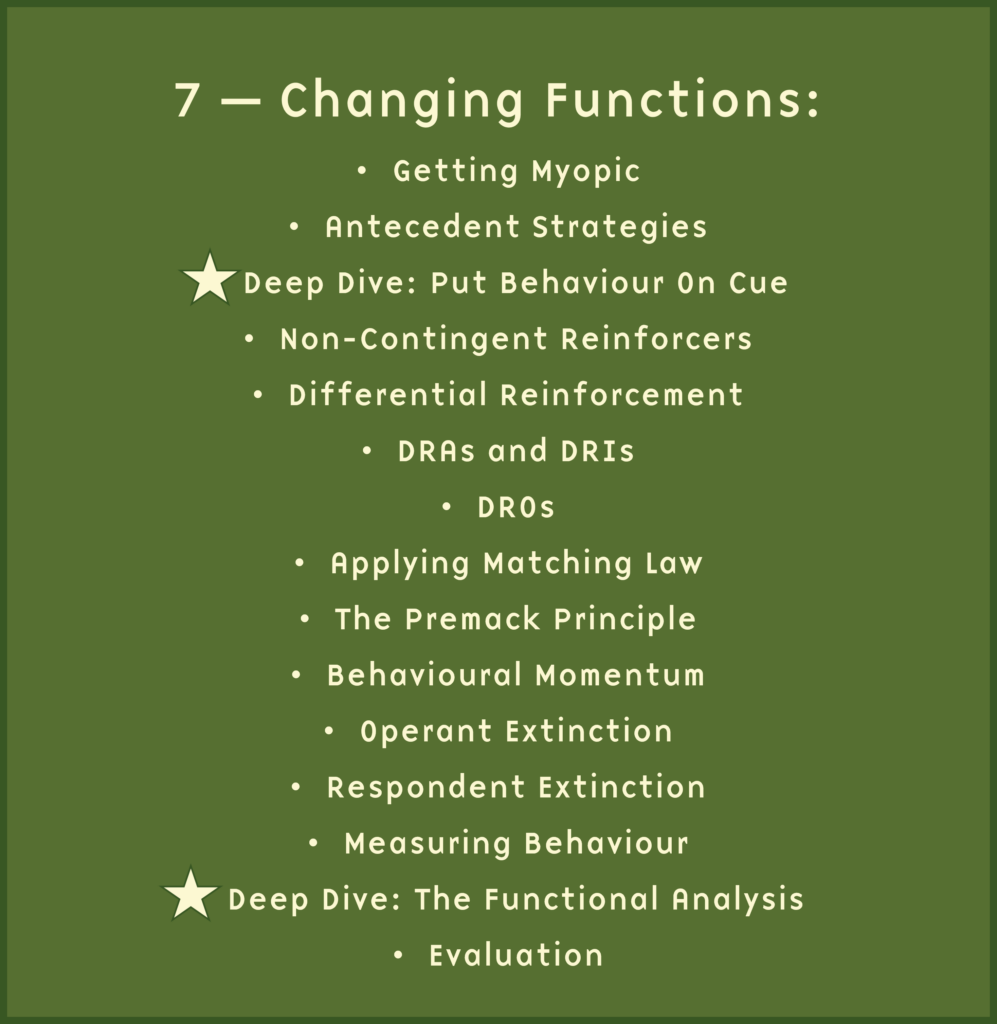
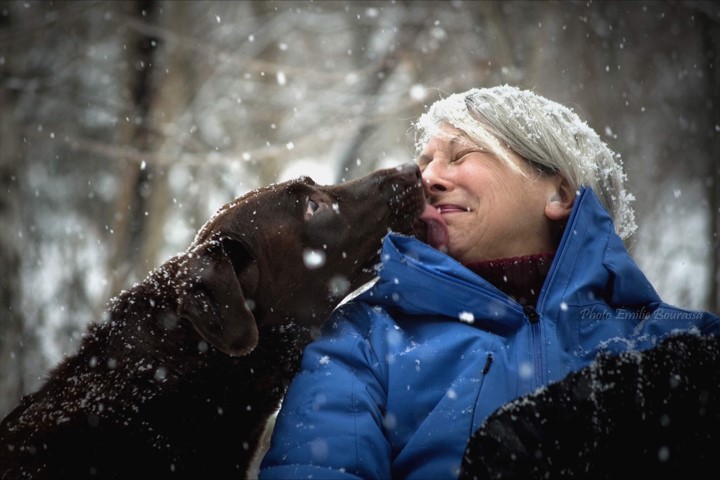
Module 8 – Getting Creative
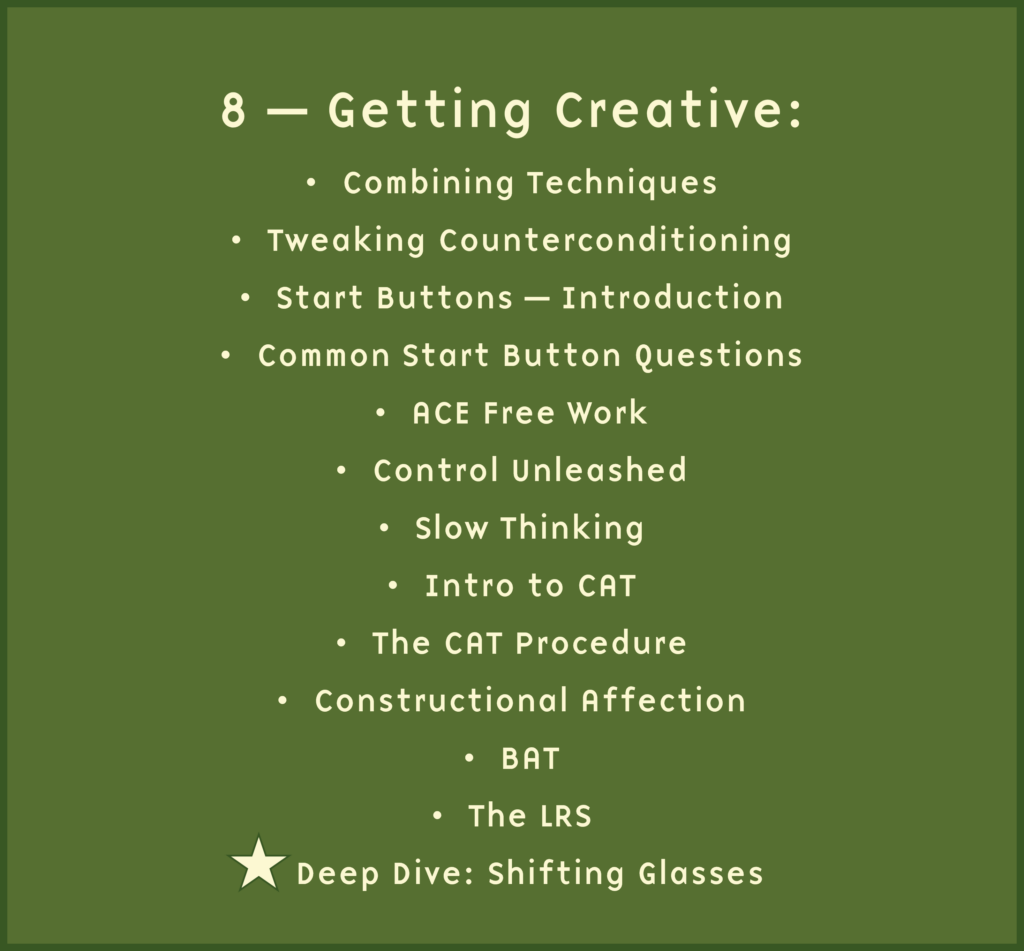
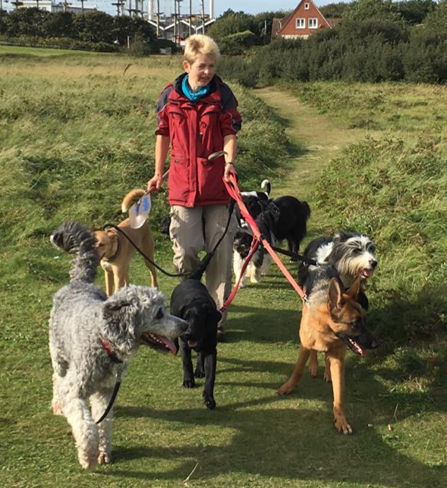
Module 9 – Prevention
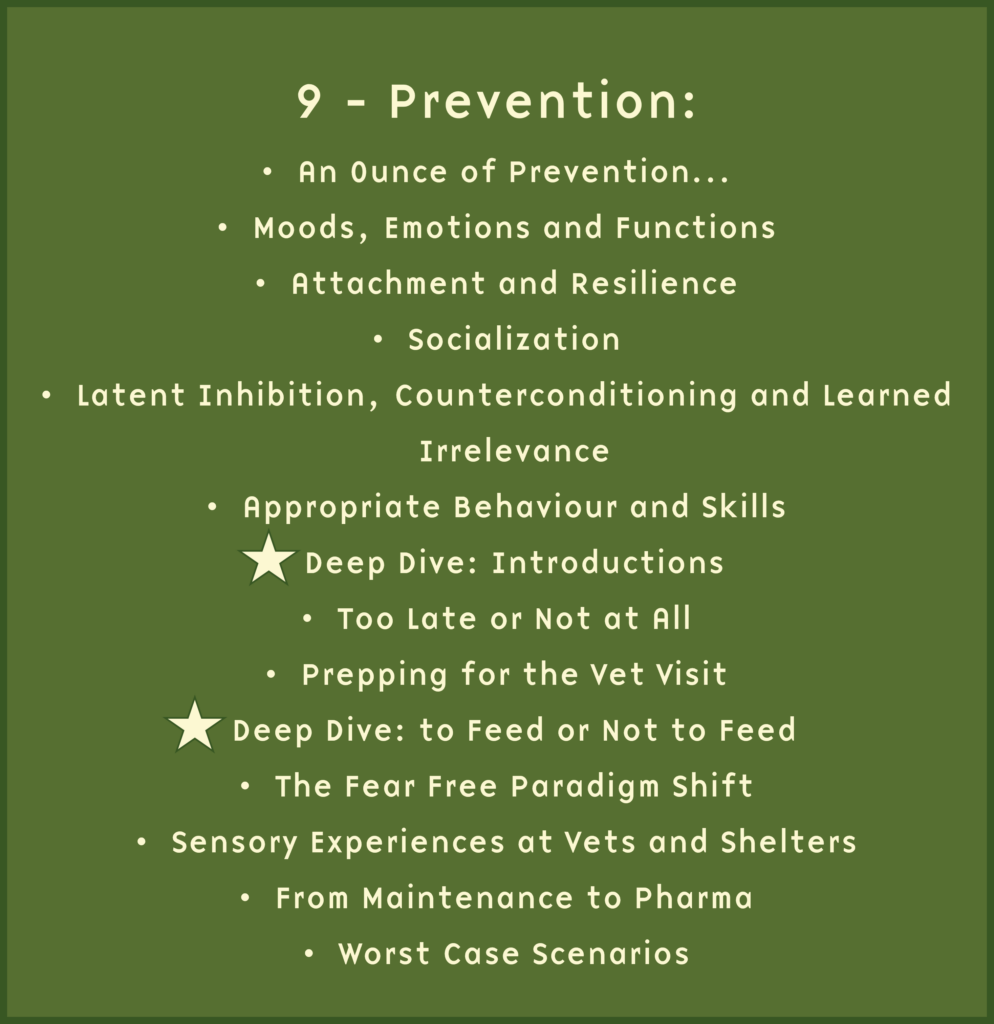

Module 10 – Punishment
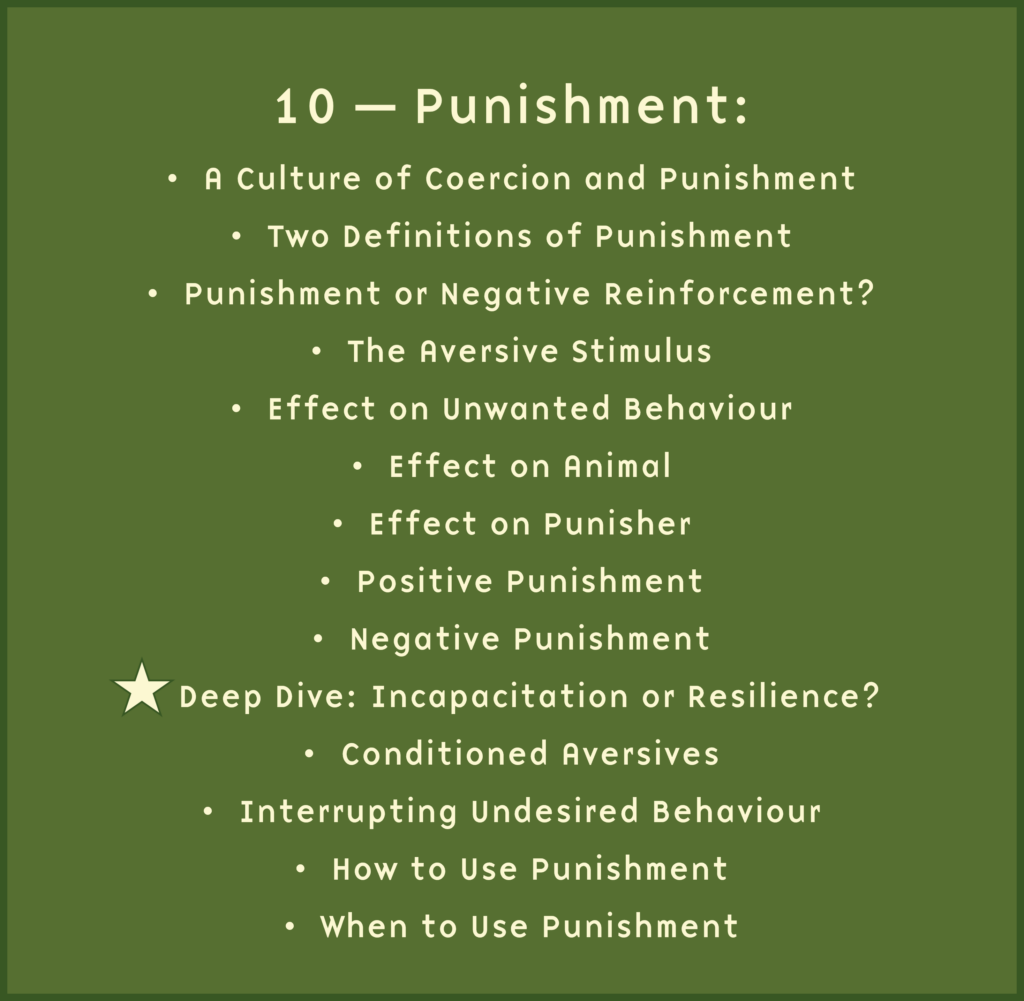

Bonuses!

Frequently Asked Questions


6 replies on “Resolving Challenging Behaviour”
A bit confused regarding module 10,
Am I to understand that you do or do not agree with punishment?
This would affect my decision to register for the course
Thanks 😊
Hi Beth, this is my stance on punishment: https://illis.se/en/punishment-problems/
I am so excited to start this course.
me too! *see* you in there! 🙂
How do I hind the login page when I’m on a new device?
I’m afraid I will have this same problem over and over again, LOL
There was even a “menu”, but there wasn’t login there 🙁 And when I finally found a link to the login page there wasn’t the word “login” there – I kept searching through the page using the search button and writting “login” which turned out not to be the correct key word to find the login (it was named “find your courses here”).
I remember that the login link used to be somewhere on the page, it was even duplicated, but it disappeared 🙁
Is it possible to put the link to the login page somewhere where it is easy to find?
It’s weird, I know! The link is in all the emails in all my courses. I would add it as a bookmark on your browser, so it’s easy to find. Sorry about the inconvenience! I write about this here, too: https://illis.se/education/modules/technical-stuff-2025-3/